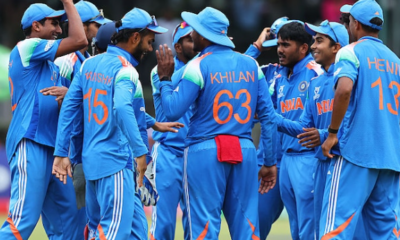Latest business news
Brace yourself: Petrol, Diesel prices to shoot up 20 percent

India News
Union Budget 2026 highlights: Nirmala Sitharaman Raises Capex to Rs 12.2 Lakh Cr, West Bengal Gets Major Allocation
Finance Minister Nirmala Sitharaman is presenting the Union Budget 2026 in Parliament today. Follow this space for live updates, key announcements, and policy insights.
India News
Union budget 2026 to be presented on Sunday with special trading session
The Union Budget 2026 will be presented on a Sunday for the first time in over two decades, with NSE and BSE announcing special trading sessions for the day.
India News
Modi says right time to invest in Indian shipping sector; meets global CEOs
-

 Latest world news24 hours ago
Latest world news24 hours agoBangladesh rushes to finalise US trade deal after India secures lower tariffs
-

 Cricket news18 hours ago
Cricket news18 hours agoVaibhav Suryavanshi’s record 175 puts India U19 on course for massive total in World Cup final
-

 Latest world news18 hours ago
Latest world news18 hours agoSuicide bombing at Islamabad shrine kills 10, over 20 injured
-

 India News19 hours ago
India News19 hours agoCentre reassures farmers as India-US trade deal nears completion
-

 Latest world news14 hours ago
Latest world news14 hours agoSuicide bombing at Islamabad imambargah kills 69, over 160 injured
-

 Cricket news13 hours ago
Cricket news13 hours agoIndia wins sixth U19 World Cup title with dominant 100-run win over England
-

 India News25 mins ago
India News25 mins agoTrump lifts additional 25% tariff on India after deal on Russian oil imports











